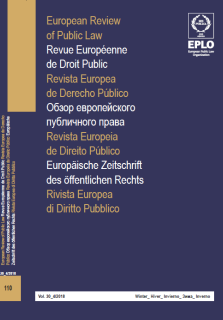
Whistleblowing: “In Good Faith” or “In the Public Interest”?
Member of the Board of Directors of the Hellenic Single Public Procurement Authority - HSPPA,
Teaching Staff of the Hellenic Open University
The essential role played by whistleblowers when it comes to the prevention, reporting and remedying of wrongdoing is no longer a topic of debate after the wide range of cases uncovered thanks to the reporting of brave individuals. The concepts of who can be a whistleblower and what reprehensible actions may be reported through a whistleblower system are some of the key pillars of any whistleblower framework. Α principal requirement of most whistleblower protection provisions in multilateral anti-corruption instruments, and corresponding domestic whistleblower protection legislation, is that the disclosures be made in “good faith” and on “reasonable grounds.” In the last years there is a new tendency that the requirement of “good faith” should be omitted in favor of a “public interest” requirement so as to move the focus of the legislation to “the message rather than the messenger”, on the basis that a disclosure which is in the public interest should not be unprotected solely because it is made in bad faith. This study will focus on this reflection.
Le rôle essentiel joué par les lanceurs d’alerte en matière de prévention, de signalement et de réparation d’actes répréhensibles ne fait plus matière à débat depuis qu’un large éventail de cas ont été révélés après avoir été signalés par des individus courageux. La question de savoir qui peut être un lanceur d’alerte et quels actes répréhensibles peuvent être signalés par le biais d'un système de lancement d’alerte est l’un des principaux piliers de tout cadre de dénonciation. L’exigence principale de la plupart des dispositions de protection des lanceurs d’alerte dans les instruments multilatéraux anti-corruption et dans la législation nationale correspondante en matière de protection des lanceurs d’alerte est que les révélations soient faites “de bonne foi” et pour “des motifs raisonnables”. Ces dernières années, la nouvelle tendance est que l’exigence de “bonne foi” cède le pas à une exigence d’“intérêt public” afin de déplacer l’objet de la législation “du messager vers le message”, parce qu’une divulgation qui sert l’intérêt public ne doit pas se trouver non protégée simplement parce qu’elle est faite de mauvaise foi. La présente étude se concentrera sur cette réflexion.





















